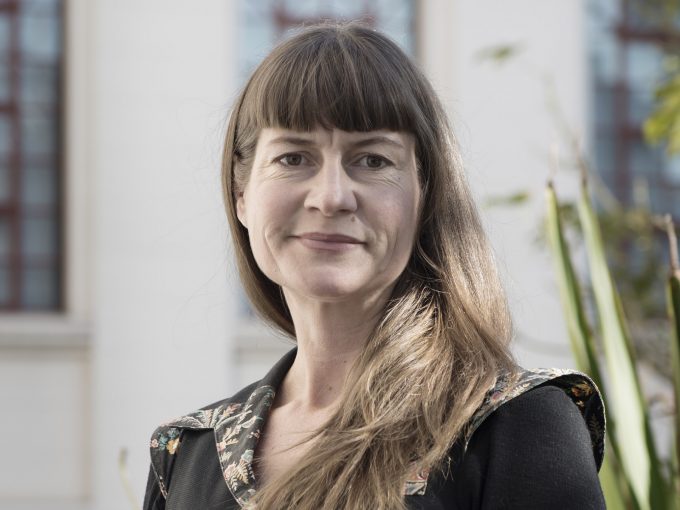Researchers from RMIT received funding to deliver innovative, impact-associated research from the latest round of the Australian Research Council (ARC) Linkage Projects scheme.
Linkage grants fund collaborative research and development projects between higher education researchers and partner organisations.
Deputy Vice-Chancellor Research and Innovation and Vice-President, Professor Calum Drummond, said the new developments would address real-world problems, and most importantly deliver significant economic, social and cultural benefits to global communities.
“Excellent research translation benefits all of us when it has a positive impact on prosperity or the way we live,” Drummond said.
“RMIT welcomes the government’s support of industry-connected collaboration and supports the government’s commitment to invest in innovation with the aim to inspire growth, change lives and ensure Australia’s global competitiveness through the National Innovation and Science Agenda.”
Research grants include Professor Sarah Bekessy, Dr Cecily Maller, Dr Fiona Fidler, Dr Luis Mata, Dr Georgia Garrard and Dr Ascelin Gordon from the School of Global, Urban and Social Studies and Associate Professor Adrian Dyer from the School of Media and Communication, who received $321,000 for a project designing green spaces for biodiversity and human wellbeing.
Chief investigator Bekessy said there was now abundant evidence linking biodiversity to the liveability of cities and people’s health and wellbeing.
“Yet the best ways to encourage biodiversity using urban design are poorly understood and almost nothing is known about the characteristics of green space that deliver health and wellbeing outcomes,” she said.
“This project is focusing on the mechanisms that link urban design to the socio-ecological benefits derived from green spaces to improve the design of green space in cities around the world.
“The exciting aspect of this project is that the benefits will extend to our whole community and our world.”
The University of Queensland, University of Sydney, Leuphana University, ARUP Pty Ltd, Melbourne City Council, Phillip Johnson Landscapes, Greening Australia Ltd are collaborators on the project.
A team that takes a different perspective on health research is led by Professor Robert Moore, Dr Anna Walduck and Professor Peter Smooker from the School of Science, who will be collaborating with Bioproperties Pty Ltd on a project for the development of a live vaccine for gut health in poultry.
The team received $450,000 to develop a live vaccine against necrotic enteritis, a disease estimated to cost the global poultry industry up to $US6 billion each year.
Chief Investigator Moore said that the project builds on their published work, which has demonstrated the efficacy of an experimental vaccine.
“The proven antigen, NetB, will be expressed in live delivery vehicles, including the apicomplexan parasite Eimeria and several bacteria strains particularly suited to use in chickens,” he said.
“Comparative analysis of the different vaccine vehicles will allow evaluation of the relative advantages and disadvantages of the different vehicles for delivery of heterologous vaccine antigens, thus informing the choice of appropriate vectors for this and other vaccine applications.”
Other successful projects were:
- Professor Milan Brandt, Professor Mark Easton, Associate Professor Martin Leary, and Dr Shoujin Sun, from the School of Engineering received $330,000 for a project on Additive manufacturing wear-resistant products for erosive environments.
- Professor Stefan Kasapis and Dr Oliver Jones from the School of Science received $230,000 for a project on Insoluble-fibre enriched beverages: Innovation for a healthier Australia.
- Dr Brett Carter, Professor Kefei Zhang and Dr Robert Norman from the School of Science received $230,877 for a project on Next Generation Space Weather Forecasts.
- Dr Jie Li, Dr Donald Cameron and Dr Annan Zhou from the School of Engineering received $220,000 for a project on Sustainable planting of trees in suburban environments on shrinkable clays.
- Associate Professor Reza Hoseinnezhad and Professor Alireza Bab-Hadiashar from the School of Engineering received $234,098 for a project on Crowd tracking and visual analytics for rapidly deployable imaging devices.
- Professor Alireza Bab-Hadiashar and Associate Professor Reza Hoseinnezhad from the School of Engineering received $285,000 for a project on Visual intelligence for safe vehicle operation in industrial environment.
Story: Petra van Nieuwenhoven
Originally published on RMIT News.





